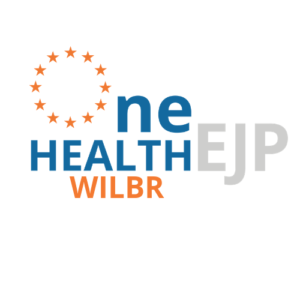Stocker Road, Exeter, England, United Kingdom
Dag Hammarskjölds väg 751, Uppsala, Uppsala län, Sweden
Addlestone, England, United Kingdom

The Project #WILBR
| Start: | February 2020 |
| Duration: | 3 years |
| Domain: | Antimicrobial Resistance |
| Members: | APHA- UK, SVA- Sweden |
| Contact: | Dr Muna Anjum |
WILBR: Contribution of wild birds to AMR in the environment and on farms
The propagation and spread of microorganisms resistant to antimicrobials is a global phenomenon that is affecting both human and animal health. To address this concern from as early as 2006 there has been a ban in Europe on use of antimicrobials as growth promoters in animal husbandry. More recently national programmes have been implemented through ECDC and EFSA for medical and veterinary institutions in Europe to annually participate in antimicrobial surveillance, so resistance trends can be monitored in some key zoonotic and commensal bacteria isolated from livestock and food products, and also associated with human infections. Antibiotic stewardship programmes have also progressed in medical and veterinary sectors in many European countries, promoting prudent use of antibiotics in the aforementioned sectors.
Therefore, through the One Health agenda the risk posed by the medical and veterinary sectors are being assessed and addressed, but there has been limited focus both in Europe and globally on the role of the environment in propagating resistant microorganisms through inadequate treatment of contaminated/waste water, or medical, biological and food waste, which may be dispersed further through wild life such as wild birds. Although there is a dearth of information in the involvement of wild birds in dissemination of antimicrobial resistance (AMR), presence of bacteria harbouring resistance to high priority critically important antibiotics (HP-CIAs) such as the plasmid mediated colistin resistance gene mcr-1 has been reported in bacteria from European herring gull from Lithuania, Kelp gulls from Argentinia), and wild migratory birds from Siberia and Eurasia in Pakistan. Carbapenemase-producing Enterobacteriacea have been reported from gulls in France and Australia and migratory birds have also been implicated in carriage of Enterobacteriaceae with the extended spectrum beta-lactamase gene blaCTX-M in places as diverse as Pakistan and Alaska.
Migratory birds, which represent ~40% of total birds in the world, can fly many thousands of kilometres, often overwintering in Africa and Eurasia, and returning to the northern hemisphere in spring. These birds add another level of complexity to identify and control the routes for dissemination of AMR, as they often overwinter in countries or areas where there may be paucity of information of resistance trends due to limited surveillance and diagnostic capacity, with the burden of AMR unknown.
Wild birds can also migrate seasonally from northern to southern Europe, or even between different regions of the same country, habitually exchanging landfill sites in one region for another (APHA wildlife team; personal communications). Furthermore, data analysis by whole genome sequencing (WGS) of faecal isolates purified from sampling AMR in the environment on an UK pig farm selected within ARDIG (research funded through EJP One Health WP3), have identified multidrug resistant (MDR) E. coli harbouring up to 10 AMR genes in both pig and gull faeces collected at different sampling points. WGS have indicated that there are less than 10 single nucleotide differences between these isolates, indicating a possible clonal transfer (Storey et al, unpublished data).
Therefore, to help provide an assessment of the environmental risk posed by AMR and identify management options with clear indicators of effectiveness, there is a need to understand the contribution of factors such as wild birds to dissemination of AMR in the environment in general, and on livestock farms in particular.
Project Assets
Turner, O., Storey, N., Martelli, F., Cawthraw, S., Gaze, W., Borjesson, S., Abu Oun, M., & Anjum, M. (2022). WILBR: Contribution of wild birds to AMR in the environment and on farm. Oral presentation at One Health EJP Annual Scientific Meeting, Orvieto, Italy. 11-13th April 2022.
Congratulations to Olivia Turner who won the Early Career Oral Presentation at the One Health EJP Annual Scientific Meeting 2022 in Orvieto, Italy.
PhD student: Olivia Turner
No photo or biography provided by Olivia


